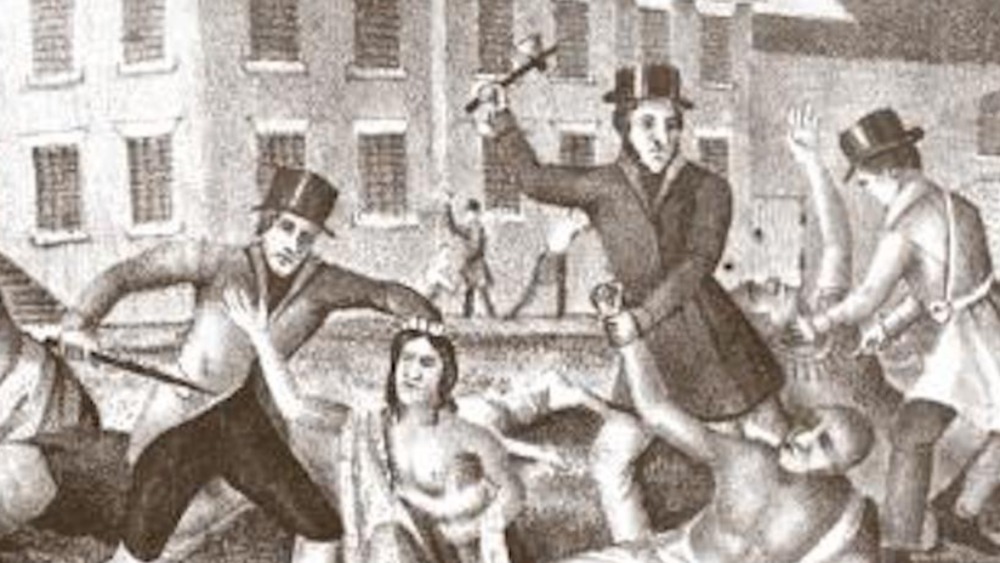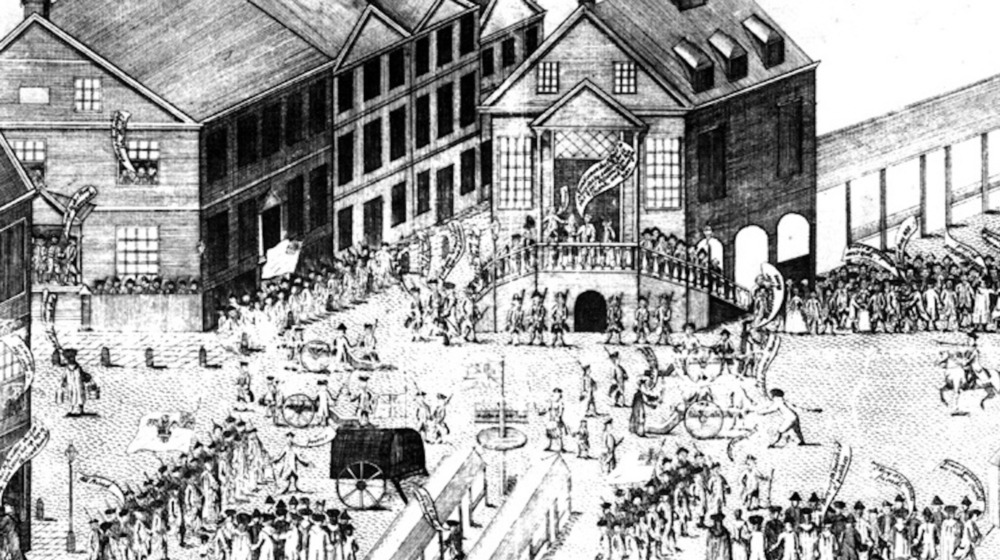The Tragic Story Of The Paxton Boys Massacres
The history of the world is fraught with violent clashes between settlers of new land and the Indigenous peoples who fight to preserve their heritage. As with others before them, the exploits of the American colonizers put them face to face with the natives that called the land home for years past, and the encounters often turned bloody. One of the more tragic incidents was the Paxton Boys massacre, when Pennsylvania rebels slaughtered an unarmed Indian settlement amid the heightened tensions of war.
According to The Encyclopedia of Greater Philadelphia, the slaughter came during Pontiac's War in 1763, which saw the Great Lakes and Ohio Valley regions consumed by a vicious battle between the British Empire and Native Americans. The violence of war soon spread out to Pennsylvania, and Native American raids on the state's back country acted as fuel for panic.
Amid the violence and chaos, a group of about 50 Scots-Irish Presbyterian settlers decided to take matters into their own hands and channel their rage onto the Conestoga Indian reserve near Lancaster. Even though the reserve was under the protection of the family of William Penn, the founder of the Province of Pennsylvania, Encyclopedia Britannica reported that the group of vicious rebels attacked 20 unarmed Native Americans. They murdered six, and the 16 others escaped.
The Paxton Boys were never prosecuted for their brutal crimes
The violence perpetrated by the frontiersmen was harrowing. William Henry, a resident of Lancaster, spoke of the macabre scene left in the wake of the massacre. "This man's hand and feet had been chopped off with a tomahawk. In this manner lay the whole of them, men, women and children spread about the prison yard; shot, scalped, hackled and cut to pieces," he said.
The gruesome slaughter was enough to stand out amid Pontiac's War. As noted by Andrew Kirk in a piece for Pennsylvania Center for the Book, the mutilation and scalping of the unarmed civilians, including women and children, had a significant impact on Pennsylvanians across the region.
Nevertheless, the Paxton Boys were never prosecuted due to sympathy from frontier residents affected by Native American violence. And according to The Encyclopedia of Greater Philadelphia, the anti-Indian racism that the Paxton Boys massacre reflected continued long after they became a dark note in history.

